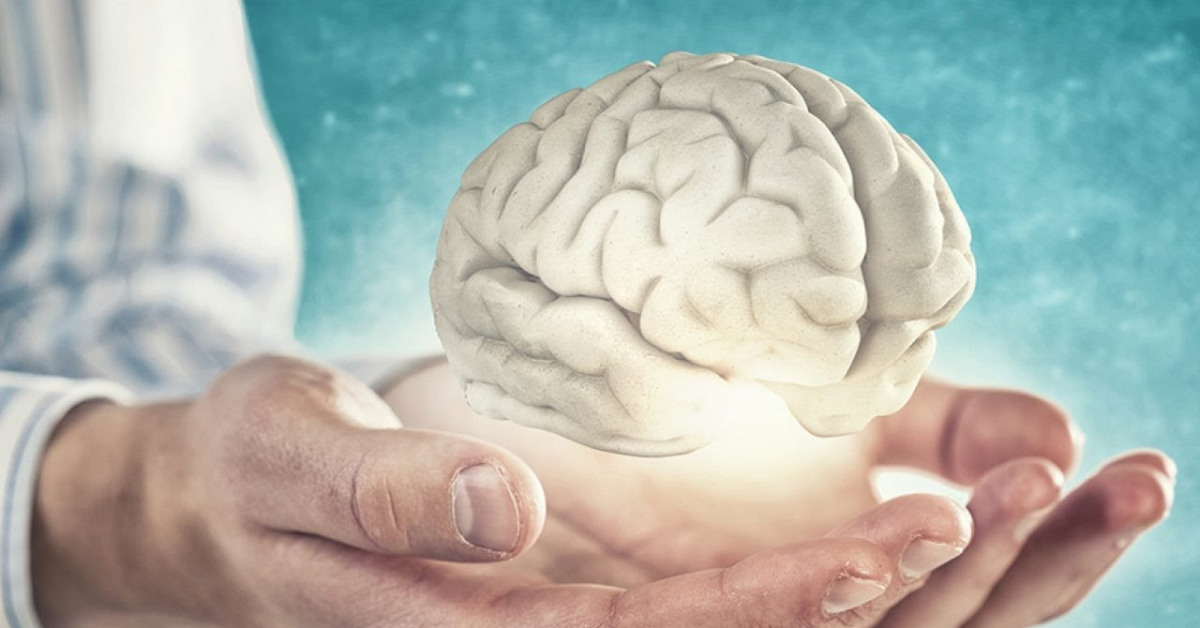
![]()
All aspects of the human body is significant. Yet, while a human can in any case get by without some body parts, one can’t make due without some other body parts, one of which is the mind.
The mind is the focal organ of the human sensory system, and with the spinal rope, it makes up the focal sensory system. The mind comprises of the cerebrum, the brainstem, and the cerebellum.
The cerebrum controls a large portion of the exercises of the body, preparing, incorporating, and planning the data it gets from the receptors and settling on choices with regards to the directions shipped off the remainder of the body. The mind is contained in, and secured by, the skull bones of the head.

As indicated by researchers, the cerebrum is an astounding three-pound organ that controls all elements of the body, deciphers data from the rest of the world, and exemplifies the quintessence of the brain and soul.
Knowledge, imagination, feeling, and memory are a portion of the numerous things administered by the mind.
It gets data from the five detects: sight, smell, contact, taste, and hearing – regularly numerous at one time. It at that point amasses the messages in a manner that has importance for people and can store that data in the memory. The cerebrum controls considerations, memory and discourse, development of the arms and legs, and the capacity of numerous organs inside the body.
Notwithstanding, as different pieces of the body, there are way of life propensities that influence mind wellbeing, especially in a period of innovation where individuals are being reworked to accomplish more to the inconvenience of the cerebrum.
As per specialists, the cutting edge way of life is working on neural pathways and making people more slow, denser, and less fit for unique idea. Hyper-availability is progressively negatively affecting the cerebrums and eventually, numerous individuals end up less beneficial and incapable.
A UK-based business visionary and wellbeing master, Thomas Oppong, said when discussing wellbeing, numerous individuals didn’t generally consider sustaining their minds the manner in which they fed their bodies.
“However, to be our most gainful self, we have to accomplish a greater amount of what improves our mind wellbeing, and less of what causes psychological decrease. Start by changing your day by day propensities and staying away from these normal current propensities – your cerebrum will thank you,” Oppong composed on businessinsider.com.
Inertia
Actual idleness has its sticker prices – it’s connected to the advancement of persistent medical conditions like coronary illness, stoutness, wretchedness, dementia, and malignant growth. Numerous individuals are too occupied to even think about making time for “fundamental development exercises” that can slow psychological decrease strolling, cycling, extending, and so forth
Being stationary changes the state of specific neurons in the mind, as indicated by an examination in the Journal of Comparative Neurology that proposes a connection among latency and mental decay.
Normal actual movement can profit you psychologically as they increment cerebrum synthetic compounds which advance better memory and learning.
For the wellbeing of emphasis, sitting is one of the most exceedingly awful things one can do to their wellbeing. An investigation at the University of California, Los Angeles, announced that individuals who were more inactive had diminishing in cerebrum areas connected to memory. The examination found that sitting wasn’t only an actual wellbeing hazard – it’s a neurological danger too.
The investigation creators stated, “It is conceivable that stationary conduct is a more critical indicator of mind structure, explicitly (average worldly flap) thickness, and that actual action, even at more elevated levels, isn’t adequate to counterbalance the destructive impacts of sitting for broadened timeframes.”
You can decrease the measure of sitting you do by receiving intercessions like moderate strolling, standing while at the same time working, in any event, for only 10 minutes all at once, and standup gatherings.
Performing multiple tasks
In this time of innovation, cell phones have become Swiss armed force blades. Numerous individuals use them constantly. They text while strolling over the road, make up for lost time with email while driving, peruse or tune in to digital broadcasts while remaining in a line.
As per emotional well-being specialists, performing multiple tasks isn’t just terrible for profitability, it’s likewise a propensity that overhauls the mind and makes one less powerful.
A neuroscientist at the Massachusetts Institute of Technology in the United States, and one of the world specialists on partitioned consideration, Earl Miller, noted in his examination that human minds “are not wired to perform multiple tasks well.”
“At the point when individuals believe they’re performing multiple tasks, they’re in reality changing starting with one undertaking then onto the next quickly. Furthermore, every time they do, there’s an intellectual expense in doing as such,” he said.
“Performing multiple tasks builds the pressure hormone cortisol just as the battle or-flight hormone adrenaline, which can overstimulate your cerebrum and cause mental haze or mixed reasoning,” he added.
Data over-burden
Things are occurring quick and numerous individuals need to make up for lost time with occasions around them as they occur. Nonetheless, this can prompt pointless over-incitement of the mind.
The sheer volume of messages, social updates, and notices individuals get can be overpowering and whittle down the day for some. The consistent stream of substance, if not oversaw, can make pressure and lead choice over-burden.
“An excess of data or data over-burden is perhaps the greatest aggravation in present day life,” specialists at The Economist composed.
A few people gladly brag of the number of things they can shuffle in a solitary day. In any case, Glenn Wilson, a previous visiting educator of brain science at Gresham College in London, discovered in his examination that being in such a circumstance could lessen one’s viable Intelligence Quotient by 10.
Oppong encouraged that to augment the mind each day, one should utilize better devices and settings to channel data for the duration of the day.
“Be proactive about how you devour media. Set up your cerebrum to overlook superfluous data. At the point when you arrange your day in light of these standards, you will probably expand your mind’s productivity essentially,” he said.
Less up close and personal association
Today, up close and personal associations are progressively being supplanted by computerized apparatuses. Individuals invest more energy online than any other time in recent memory.
“Anything with a screen – TV, telephones, tablets, PCs, computer games – comprises screen time,” said Tom Kersting, a psychotherapist and emotional wellness master.
“In the event that most of our waking hours involves taking a gander at a screen, at that point we realize it is an excessive lot. An eye to eye discussion is extraordinarily useful for your cerebrum,” he said.
Additionally, an examination by the University of Michigan found that even only 10 minutes out of every day of discussion with someone else could improve memory and discernment.
“In our investigation, mingling was similarly as viable as more customary sorts of mental exercise in boosting memory and scholarly execution,” said Oscar Ybarra, a therapist at the U-M Institute for Social Research and a lead creator of the examination.
The absence of genuine individual association restricts the mind’s occasions to improve associations. It can likewise prompt dejection and wretchedness – states of mind that contribute essentially to decreased cerebrum wellbeing.
Taking a gander at screens everything day can hurt one’s eyes, ears, neck, shoulders, back, wrists, and lower arms. It likewise meddles with getting a decent night’s rest.
As per specialists, inordinate screen time negatively affects scholarly capacities just as enthusiastic prosperity.
Accordingly, it is prudent to define clear limits with screens to try not to create unfavorable propensities. The objective isn’t to maintain a strategic distance from screen time altogether, as that is not sensible in current life. Be that as it may, in case you will utilize a gadget, be careful.
Tuning in to uproarious music
Numerous individuals love to switch up the volume as it makes the music sounds more fun and vivid. In the time of commotion dropping earbuds and earphones, you can undoubtedly harm your hearing.
At the point when the remainder of the world gets too diverting, it’s enticing to fly in your earbuds, wrench up your #1 tunes, and close yourself off to concentrate better.
As indicated by specialists, in the event that you reliably impact your music too boisterously, you can harm your hearing. Yet, it’s not simply your ears: Hearing misfortune in more seasoned grown-ups is connected to mind issues, for example, Alzheimer’s and loss of cerebrum tissue.
At the point when your mind needs to strive to comprehend what’s being said around you, it can’t store what you’ve heard into memory. In this way, secure your hearing by changing the volume of your earphones – it’s an astounding method to save your hearing and permit your mind to work better.
“One test we prescribe is to eliminate your earphones, keeping them at your favored volume, and hold them out before you at a manageable distance. Would you be able to hear the music unmistakably? Provided that this is true, have a go at turning it down and rehashing,” composed specialists at Headphonesty.
Continuously expect to take ordinary breaks over the span of the day to give your ears a truly necessary rest.
Lack of sleep
Lacking rest is an immense issue for some bustling experts. Lack of sleep can have genuine present moment and long haul outcomes – it can defer response times, glucose levels, mind-set, cerebral pain, hindered memory, and hormone awkward nature. Investigates demonstrated that not getting enough rest may really shrivel your mind.
Rest is significant for your mind. At the point when you deny your mind of solid rest, how it measures data, combines recollections, makes associations, and gets out poisons endures.
Absence of rest hinders your reasoning, disables your memory, fixation, judgment, and dynamic, and blocks learning.
Improving your rest propensities could be a significant method to improve mind wellbeing. Seven to eight hours of good rest a night is basic for invigorating new associations and mind development.
On the off chance that you are worried about the strength of your mind and the nature of your reasoning now or later on, figure out how to deal with your cerebrum. A couple of straightforward changes to your way of life could support your memory, learning, mental versatility, and by and large strength of your cerebrum.
Eating inordinate lousy nourishment
As indicated by explores, portions of the cerebrum connected to learning, memory, and psychological well-being are more modest in individuals who take heaps of burgers, fries, potato chips, and sodas in their eating routine.
Then again, berries, entire grains, nuts, and green verdant vegetables can protect mind work and moderate mental decrease. So next time you begin to go after a sack of chips, get a small bunch of nuts all things considered.
In the interim, on the off chance that you eat an excess of food – even the correct sort of food – your cerebrum will be unable to assemble a solid organization of associations that assist you with intuition and recall. On the off chance that you gorge for a really long time, you may get hazardously overweight, which can cause coronary illness, diabetes, and hypertension – all connected to cerebrum issues and Alzheimer’s.
Likewise, specialists said smoking could make the cerebrum shrivel, which is a terrible thing.
“It (smoking) aggravates your memory and makes you twice as liable to get dementia, including Alzheimer’s. It additionally causes coronary illness, diabetes, stroke, and hypertension,” specialists at webmd.com said.

Leave a Reply